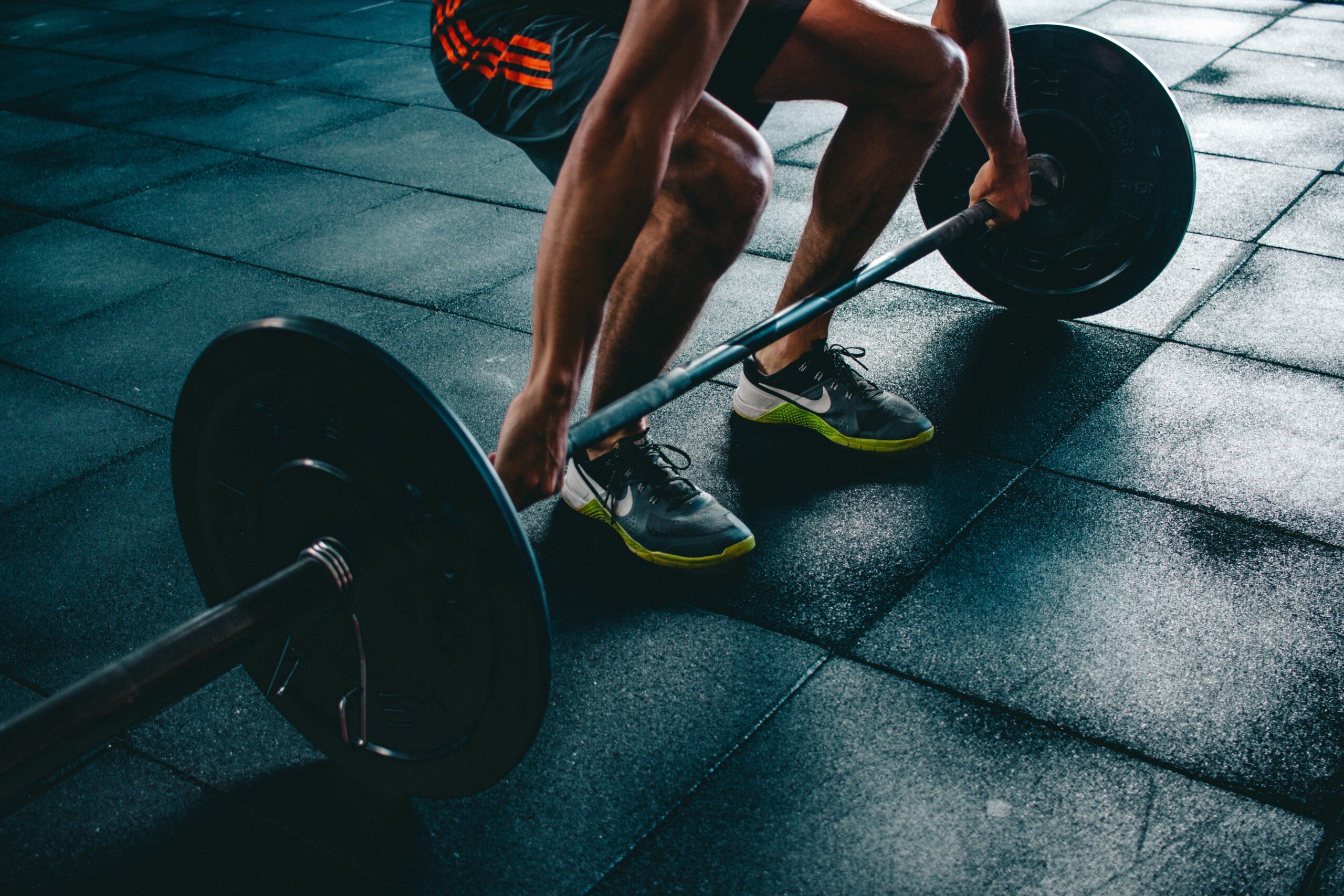Are you an athlete searching for a new approach to enhance your performance and fuel your body? Look no further than the keto diet. This increasingly popular eating plan is not only transforming the lives of countless individuals, but it’s also catching the attention of athletes around the world. The keto diet boasts a number of potential benefits for athletes, including improved endurance, increased focus, and enhanced fat-burning capabilities. In this article, we will explore the fascinating connection between the keto diet and athletic performance, providing you with valuable insights and information to help you decide if this dietary strategy is right for you. So, get ready to discover how the keto diet could revolutionize your athletic journey.
Understanding the Keto Diet
The fundamentals of keto diet
The keto diet, short for ketogenic diet, is a low-carbohydrate, high-fat diet that has gained popularity in recent years. The main goal of the keto diet is to shift your body’s primary source of fuel from carbohydrates to fats. By drastically reducing your carbohydrate intake and increasing your fat consumption, you force your body into a metabolic state known as ketosis.
Difference between keto diet and other diet plans
What sets the keto diet apart from other diet plans is its focus on macronutrient distribution. While many popular diets emphasize reducing fat intake, the keto diet encourages high-fat consumption. This unique approach allows your body to enter a state of ketosis, where it begins to burn fat for energy instead of relying on carbohydrates.
Inclusion and exclusion on a keto diet plan
On a keto diet, your meals should consist primarily of high-fat foods such as meat, fish, eggs, dairy products, nuts, and healthy oils. Carbohydrate-rich foods like grains, legumes, fruits, and sugary treats are restricted. To achieve and maintain ketosis, it is crucial to limit your carbohydrate intake to around 20-50 grams per day.
Goal of a keto diet
The ultimate goal of following a keto diet is to achieve and maintain a state of ketosis, where your body is efficiently burning fat for fuel. This metabolic shift can lead to numerous benefits, such as weight loss, increased energy levels, and improved overall health.
Keto Diet and Athletic Performance
Energy level changes on a keto diet
One concern many athletes have when considering the keto diet is its potential impact on energy levels. Since carbs are the body’s primary source of quick energy, reducing their intake may initially cause a decrease in performance. However, as your body adapts to burning fat for fuel, many athletes report improved energy levels and sustained endurance.
Impact on physical performance
Studies on the effects of the keto diet on physical performance have yielded mixed results. Some athletes find that the high-fat, low-carb approach enhances their performance, while others struggle to maintain their previous level of output. The individual response to the keto diet may vary, so it is crucial to monitor your performance and adjust accordingly.
Keto diet: a fit for athletes?
Whether the keto diet is a good fit for athletes depends on several factors, including the type of sport, training intensity, and individual preferences. Endurance athletes, such as long-distance runners, cyclists, and triathletes, may be more likely to benefit from the keto diet due to its ability to tap into body fat stores for energy. However, power and strength athletes may find it challenging to sustain high-intensity workouts without an adequate carbohydrate intake.
Role of keto diet in muscle building and recovery
The keto diet’s impact on muscle building and recovery is still a topic of debate among experts. While some studies suggest that the increased fat consumption may support muscle growth, others argue that the lack of carbohydrates can hinder optimal muscle recovery. Athletes considering the keto diet should prioritize adequate protein intake and consult with a healthcare professional or registered dietitian to ensure their nutritional needs are met.

How Keto Diet Works for Athletes
Ketosis process
The key to the keto diet’s effectiveness lies in the process of ketosis. When you restrict carbohydrates, your body’s glycogen stores become depleted. As a result, your liver begins to produce ketones from fat to serve as an alternative fuel source. These ketones can then be used by your muscles, brain, and other organs for energy production, leading to a state of ketosis.
Fat as a source of energy
One of the main advantages of the keto diet for athletes is its ability to train the body to efficiently use fat as a source of energy. Unlike carbohydrates, which are limited in supply and require constant replenishment, fat stores provide a virtually unlimited source of fuel. This can be especially beneficial for endurance athletes who rely on sustained energy over long periods.
Effects on endurance performance
Endurance athletes, such as marathon runners or cyclists, may experience significant benefits from the keto diet. By tapping into their body’s fat stores, these athletes can sustain their energy levels for longer periods without the need for frequent carbohydrate consumption. However, it is important to note that the transition period into ketosis may initially impact performance until the body adapts fully.
Effects on strength and power performance
For athletes engaging in power and strength-based activities, the keto diet may present challenges. These high-intensity exercises primarily rely on carbohydrates for quick energy. Without a sufficient carbohydrate intake, athletes may struggle to maintain optimal performance during their workouts. However, some power athletes have reported success with targeted carbohydrate intake before intense training sessions while following a keto diet.
Benefits of Keto Diet for Athletes
Increased energy efficiency
One significant benefit reported by athletes on the keto diet is increased energy efficiency. By utilizing fat as the primary fuel source, the body can tap into its fat stores for a sustained and steady supply of energy. This can result in improved endurance and the ability to perform at high intensities for extended periods.
Reduced body fat
The keto diet’s emphasis on fat consumption can lead to a reduction in body fat percentage for athletes. When your body is in a state of ketosis, it becomes highly efficient at burning stored fat for fuel. As a result, athletes may experience weight loss and improved body composition.
Enhanced recovery
While more research is needed, some athletes claim that following a keto diet has improved their recovery time between workouts. The reduction in carbohydrate intake may decrease inflammation and oxidative stress, allowing for faster muscle repair and reduced muscle soreness post-exercise.
Glycogen reservation
With the keto diet, athletes can enhance their glycogen reservation capacity. By relying less on carbohydrates as the primary fuel source, stored glycogen becomes more accessible during intense exercise. This can be especially advantageous during endurance events when extended energy supply is crucial.

Challenges of Keto Diet for Athletes
Keto flu
One common challenge faced by individuals starting the keto diet is the so-called “keto flu.” During the initial transition to ketosis, some athletes may experience symptoms such as fatigue, headaches, dizziness, and irritability. These symptoms typically subside as the body adapts to the new metabolic state.
Lack of quick energy
Athletes relying on quick bursts of energy, such as sprinters or jumpers, may struggle with the keto diet’s lack of readily available carbohydrates. These high-intensity activities heavily rely on glycogen stored in the muscles, which can be limited on a low-carb diet. Proper timing and balance of carbohydrate intake may be necessary to maintain optimal performance.
Potential nutrient deficiencies
Following a strict keto diet may result in certain nutrient deficiencies, particularly in vitamins and minerals found in carbohydrate-rich foods. Athletes must ensure they receive adequate amounts of essential nutrients through careful food selection and possible supplementation. Consulting with a healthcare professional or registered dietitian is recommended to prevent nutritional imbalances.
Difficulty in maintaining the diet
The keto diet requires strict adherence to macronutrient ratios and limited carbohydrate intake. This level of dietary restriction can be challenging for athletes, especially when social events or travel may disrupt meal planning. The discipline and commitment required to maintain a keto diet can be a significant hurdle for some individuals.
Potential impacts on athletic performance
While some athletes thrive on the keto diet, others may experience decreased performance, especially during high-intensity activities. Each athlete’s response to the keto diet will vary, and it is important to carefully monitor performance changes and make adjustments as necessary.
Review of Studies on Keto Diet for Athletes
Findings from past studies
Numerous studies have investigated the effects of the keto diet on athletic performance, but results have been mixed. Some studies suggest that the keto diet can enhance fat burning, improve body composition, and positively impact endurance performance. However, other studies have not observed significant benefits or have reported reduced performance during high-intensity exercises.
Controversies in research results
The discrepancies in research findings can be attributed to several factors, including variations in study design, participant characteristics, and duration of keto adaptation. It is essential to approach the findings of individual studies with caution and consider the overall body of evidence when evaluating the potential benefits and drawbacks of the keto diet for athletes.
Call for further research
Due to the limited number of well-controlled studies on the keto diet specifically tailored to athletes, there is a need for further research to provide more definitive conclusions. Future studies should focus on understanding the optimal macronutrient distribution and timing for different sports disciplines and explore potential long-term effects of the keto diet on athletic performance and health.

Keto Diet and Different Sports
Suitability for endurance sports
The keto diet may be particularly suitable for endurance sports that rely heavily on aerobic energy systems. Athletes engaged in activities such as long-distance running, cycling, or swimming may benefit from the increased fat utilization and improved energy efficiency associated with the keto diet. It is important, however, to consider individual performance needs and closely monitor the adaptation process.
Suitability for power and strength sports
Power and strength athletes, such as weightlifters and sprinters, might face challenges when following a strict keto diet. These activities typically require quick and explosive movements, which heavily rely on carbohydrate availability. However, targeted carbohydrate intake before workouts or competitions may help balance the limitations of the keto diet in these sports.
Suitability for mixed sports
Sports that involve a combination of endurance, power, and strength elements, such as soccer or basketball, present a unique challenge when considering the keto diet. Individualized approaches may be necessary for athletes in mixed sports, as they need to balance performance requirements from different energy systems. Careful consideration of carbohydrate timing and intake may be crucial for optimal performance.
Lessons from Athletes on Keto
Stories of successful athletes on keto
Many athletes have successfully adopted the keto diet and reported positive outcomes. These athletes include endurance runners, triathletes, and even professional bodybuilders. Their experiences showcase the potential benefits of the keto diet for athletic performance, including improved endurance, reduced body fat, and enhanced recovery.
Athletes’ challenges and how they overcame
Athletes who have transitioned to the keto diet have faced their fair share of challenges. Some encountered difficulties adapting to the low-carb diet, while others had to experiment with carbohydrate intake to optimize performance. However, with patience, perseverance, and support from healthcare professionals or nutritionists, these athletes were able to overcome obstacles and find success on the keto diet.
Professional athletes’ opinions on keto
Opinions among professional athletes regarding the keto diet are diverse. While some athletes swear by its benefits, others are skeptical and prefer traditional high-carbohydrate diets. It is essential to recognize that individual responses to dietary interventions can vary widely, and what works for one athlete may not work for another. Consulting with professionals and listening to the experiences of others can provide valuable insights when considering the keto diet.
Guidelines for Athletes Considering Keto diet
How to transition smoothly
Transitioning to the keto diet requires careful planning and gradual adjustment. It is recommended to gradually reduce carbohydrate intake while simultaneously increasing fat consumption over a period of several weeks. This allows the body to adapt to the dietary changes and minimize the symptoms of the keto flu. Working with a registered dietitian or healthcare professional can provide personalized guidance and support during this transition phase.
How to handle workout nutrition
Athletes following the keto diet need to pay careful attention to their workout nutrition. Adequate protein intake is crucial for muscle repair and recovery. Additionally, targeted carbohydrate intake before intense training sessions may help optimize performance. Experimenting with the timing and types of carbohydrates consumed can help find the right balance for individual athletes.
How to monitor performance changes
Regularly monitoring performance changes is essential for athletes on the keto diet. Keeping track of key metrics such as energy levels, endurance capacity, and recovery time can provide insights into the diet’s impact. Adjustments may be necessary depending on an athlete’s individual response and performance goals.
Safety measures to consider
Athletes considering the keto diet should prioritize their health and safety. It is essential to consult with healthcare professionals or registered dietitians to ensure nutritional needs are met and potential deficiencies are addressed. Regular blood work and monitoring of vital signs may also be recommended to identify any adverse effects and make necessary adjustments.
Future of Keto Diet in Athletic Performance
Possible trends
As more athletes experiment with the keto diet and share their experiences, it is likely that interest in this dietary approach will continue to grow. The potential for increased fat burning, improved body composition, and enhanced endurance performance makes the keto diet an intriguing option for athletes looking to optimize their performance.
Potential improvements in understanding
Further research into the keto diet’s effects on athletic performance will help clarify its benefits and limitations. Improved understanding of the optimal macronutrient distribution, timing, and individualized approaches for different sports disciplines will enable athletes to make informed decisions regarding their dietary choices.
Future challenges and opportunities
Although the keto diet shows promise in certain athletic populations, it is important to recognize that it may not be suitable for everyone. Balancing the individual needs of athletes with the science and evidence surrounding the keto diet presents a challenge for researchers, coaches, and practitioners. However, continued research and collaboration can open up new opportunities in optimizing athletic performance through dietary interventions.
In conclusion, the keto diet has gained attention in the athletic community as a potential tool for improving performance, body composition, and overall health. While it may be particularly beneficial for endurance athletes, the keto diet’s suitability varies depending on individual preferences, sport type, and training intensity. Athletes considering the keto diet should carefully evaluate the potential benefits and challenges, seek professional guidance, and monitor their performance as they make informed decisions that align with their specific goals.

